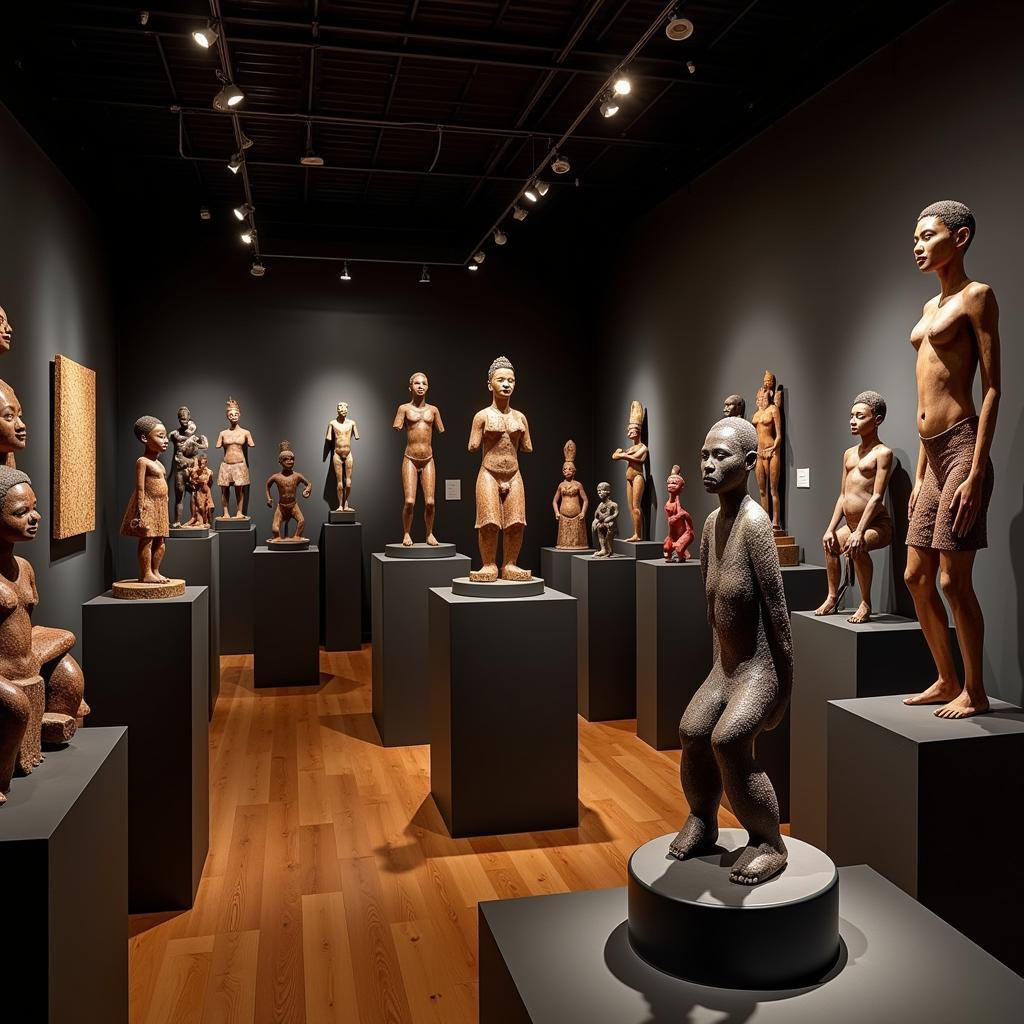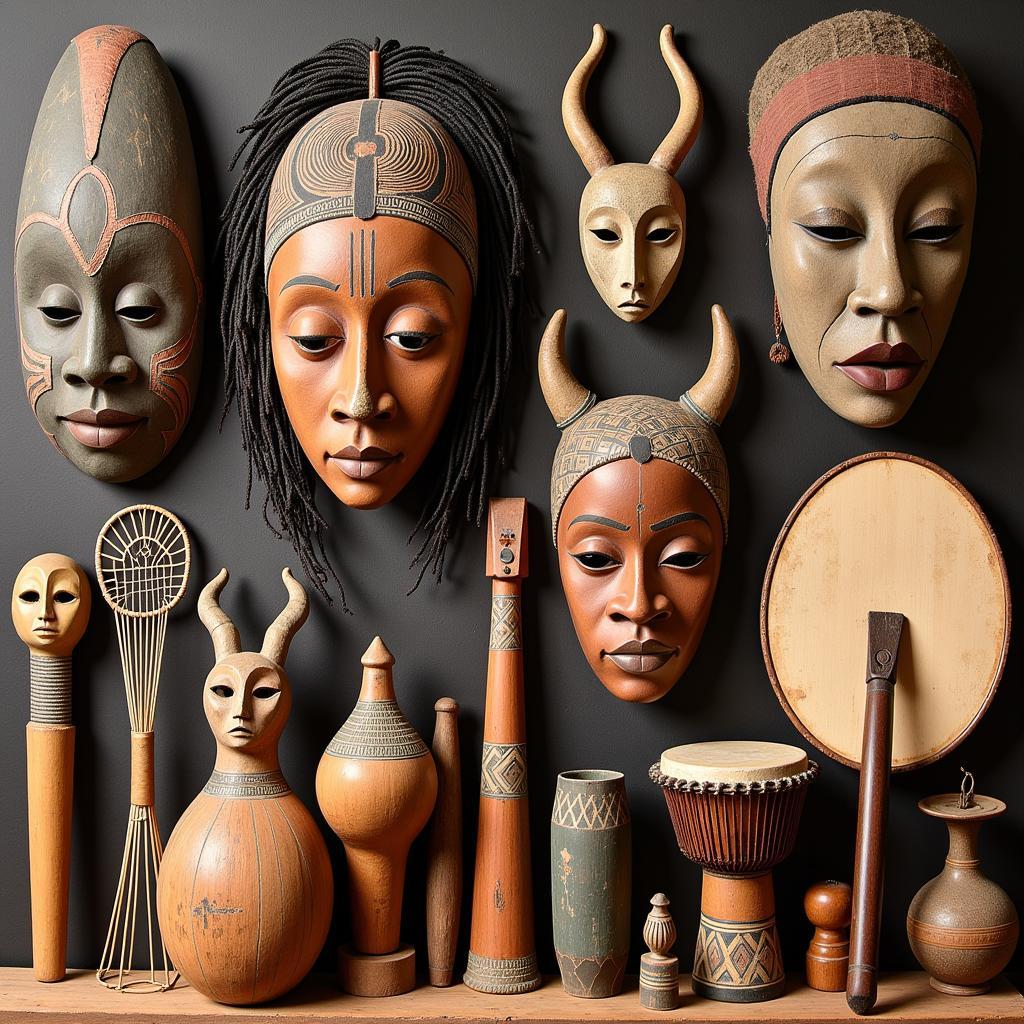A Journey Across Continents: Understanding African Immigration to the United States
African Immigration To The United States is a multifaceted and dynamic phenomenon that has shaped the fabric of American society for centuries. From the earliest arrivals of enslaved Africans to the contemporary influx of diverse communities, the African presence in the United States has left an indelible mark on the nation’s history, culture, and identity.
 African Immigrant Family Arriving at US Airport
African Immigrant Family Arriving at US Airport
Historical Roots: From Forced Migration to Voluntary Settlement
The history of African immigration to the United States is inextricably linked to the transatlantic slave trade, which forcibly brought millions of Africans to the Americas between the 16th and 19th centuries. This brutal period saw the dehumanization and exploitation of African people, who were robbed of their freedom and subjected to centuries of oppression. Despite the horrors of slavery, Africans and their descendants persevered, building resilient communities and contributing immeasurably to the development of the United States.
Following the abolition of slavery in 1865, African Americans faced continued discrimination and segregation, leading many to seek opportunities in the North and West. The Great Migration of the early 20th century saw millions of African Americans move from the rural South to urban centers, seeking better economic prospects and escape from Jim Crow laws. This internal migration within the United States was a defining moment in African American history, transforming both the South and the North.
Post-Independence Africa: A New Wave of Immigration
In the decades following World War II, African nations gained independence, leading to a new wave of African immigration to the United States. This period saw a significant increase in the number of African students, professionals, and refugees seeking educational and economic opportunities in America. The Immigration and Nationality Act of 1965, which abolished the discriminatory national origins quota system, further opened the doors for African immigration.
 Group of African Students Studying at an American University
Group of African Students Studying at an American University
Diversity and Diaspora: The Many Faces of African Immigration
Today, African immigration to the United States is characterized by its remarkable diversity. Immigrants from all regions of the African continent, each with their unique cultural heritage, languages, and traditions, are contributing to the ever-evolving tapestry of American society. From the bustling Nigerian communities in Houston to the vibrant Somali enclaves in Minneapolis, the African diaspora in the United States is a testament to the resilience, adaptability, and entrepreneurial spirit of its people.
The African American Last Name Generator: Connecting with Heritage
The increasing interest in genealogy and ancestry has led many African Americans to explore their roots. Tools like the African American last name generator can help individuals trace their family history and reconnect with their African heritage. This can be a powerful and emotional journey, shedding light on the rich and complex legacy of African immigration to the United States.
Challenges and Opportunities: Navigating American Society
African immigrants to the United States face both challenges and opportunities as they navigate their new home. While many come seeking economic advancement and educational opportunities, they often encounter racism, discrimination, and cultural barriers. The struggle for equality and inclusion remains an ongoing battle for African immigrants and their descendants.
“It’s important to remember that African immigrants are not a monolithic group,” says Dr. Amina Sow, a sociologist specializing in African immigration. “They come from diverse backgrounds, with varying levels of education, skills, and experiences. It’s essential to recognize this diversity and address the unique challenges faced by different groups within the African immigrant community.”
Despite the challenges, African immigrants have made significant contributions to American society in various fields, including healthcare, education, technology, and the arts. Their entrepreneurial spirit and determination have helped shape the economic and cultural landscape of the nation.
Looking Ahead: The Future of African Immigration to the United States
The future of African immigration to the United States is likely to be shaped by various factors, including political and economic conditions in Africa, US immigration policies, and global migration patterns. As the African continent continues to experience rapid population growth and economic development, it is anticipated that African immigration to the United States will remain significant in the coming years.
 African Immigrant Doctor Working in a US Hospital
African Immigrant Doctor Working in a US Hospital
Conclusion: A Continuing Legacy
African immigration to the United States is a story of resilience, adaptation, and the enduring human spirit. From the forced migration of enslaved Africans to the contemporary arrival of diverse communities, African immigrants have played a pivotal role in shaping the nation’s history, culture, and identity. As the United States continues to grapple with its complex past and present, it is essential to recognize and celebrate the contributions of African immigrants and their descendants. The African presence in the United States is a testament to the interconnectedness of the world and the power of human resilience.
FAQ
-
What are the main reasons for African immigration to the United States?
African immigrants come to the United States for a variety of reasons, including seeking economic opportunities, educational advancement, and escaping political instability or conflict in their home countries. -
What is the current population of African immigrants in the United States?
According to the US Census Bureau, there were an estimated 4.6 million African immigrants living in the United States in 2020. -
What are some of the challenges faced by African immigrants in the United States?
African immigrants often face challenges such as racism, discrimination, language barriers, and navigating a new culture. -
How have African immigrants contributed to American society?
African immigrants have made significant contributions to American society in various fields, including healthcare, education, technology, and the arts. -
What resources are available to help African immigrants integrate into American society?
There are numerous organizations and resources available to assist African immigrants, such as resettlement agencies, community centers, and faith-based organizations.
Need help?
For assistance with immigration matters, legal guidance, or community resources for African immigrants, contact us:
Phone: +255768904061
Email: kaka.mag@gmail.com
Address: Mbarali DC Mawindi, Kangaga, Tanzania.
Our dedicated team is available 24/7 to provide support and guidance.
Explore more on African Life:
- Discover the impact of African Communities Together v. Trump on immigration policies.
- Learn about the historical context of African Americans and Hispanic groups oppose each other in the US.
- Explore visa options with our guide to African countries with free visa.
We invite you to delve deeper into the rich tapestry of African culture and experiences on our website.





